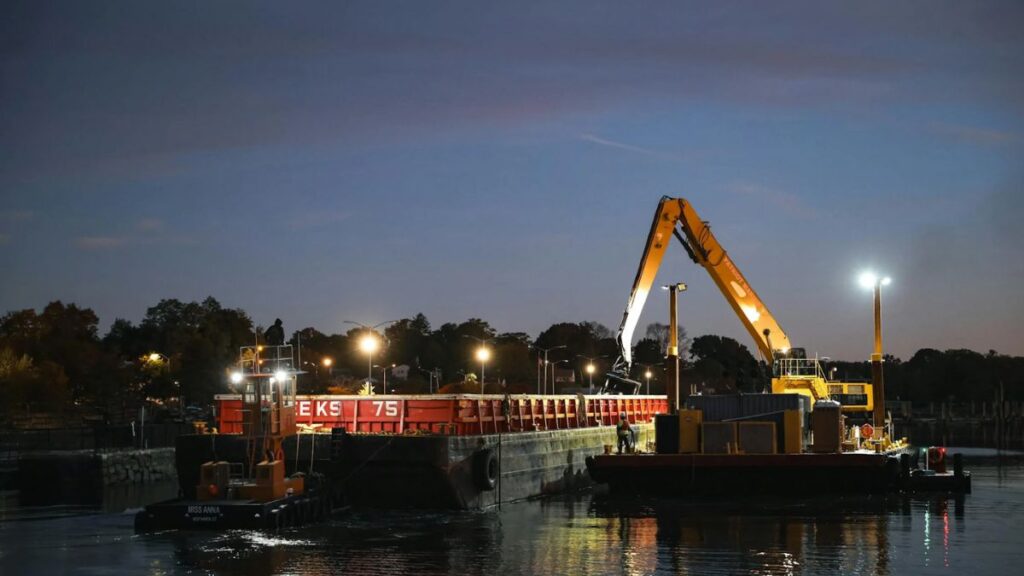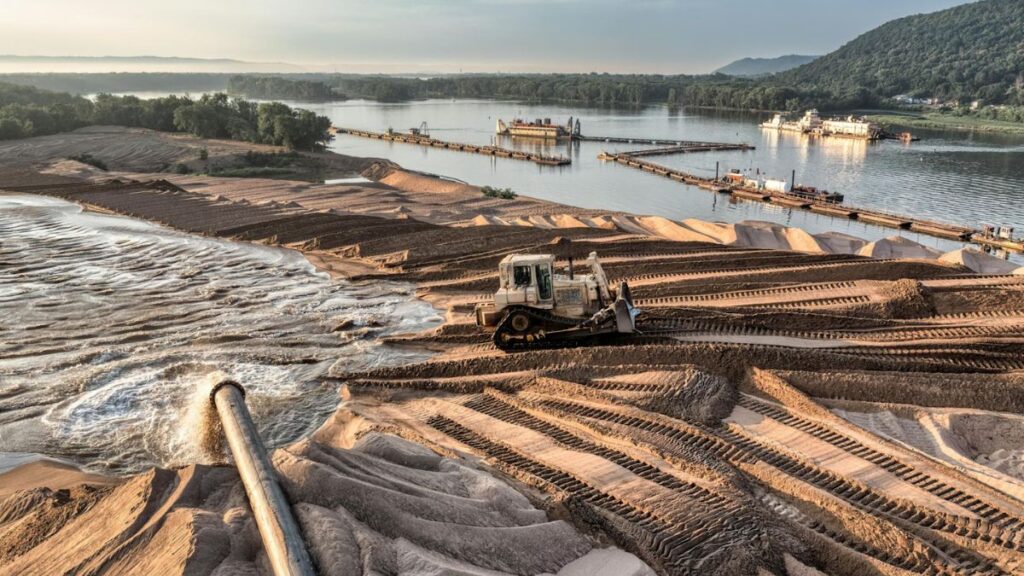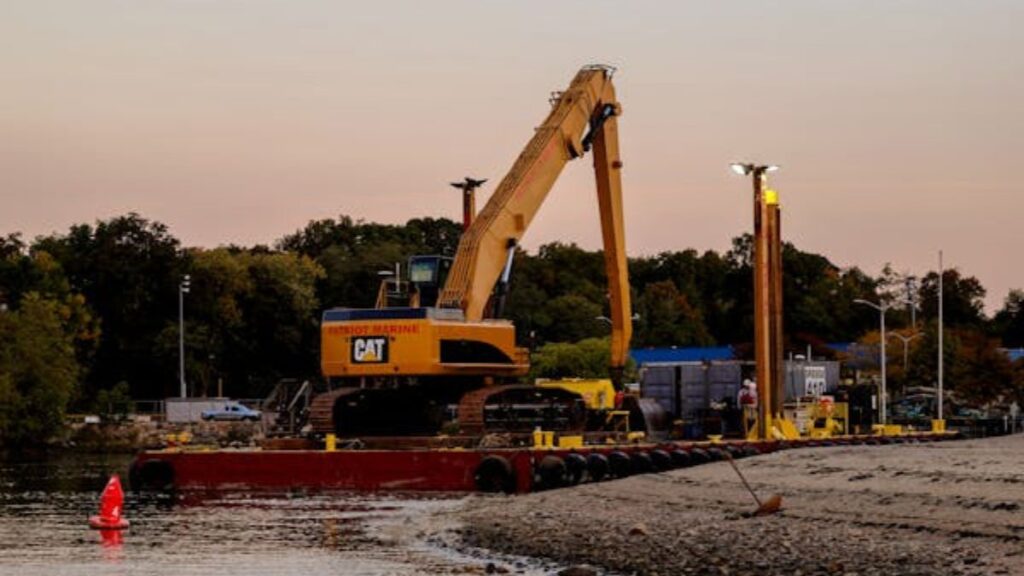Choosing the right dredge pump for heavy-duty operations can significantly impact the efficiency and effectiveness of your projects. With a variety of models and specifications available, understanding the crucial factors involved in selecting these pumps can be daunting. From operational requirements to material compatibility, it’s important to assess your specific needs before making a decision. This guide aims to provide essential tips to streamline your selection process, ensuring you optimize your dredging efforts and enhance equipment longevity.

Understand Your Specific Requirements
The first step in selecting the right dredge pump is to analyze the specific requirements of your operation. Consider factors such as the type of material you’ll be handling, whether it’s sand, gravel, or sludge. Heavy-duty dredging often involves challenging conditions, so knowing the composition and viscosity of the material ensures your pump can handle the job. Additionally, assess the required pumping distance and elevation. Pumps have varying pressure ratings, and ensuring yours fits these operational parameters is critical for efficient performance.
Choosing the wrong pump can lead to inefficiencies and maintenance issues. For instance, a pump that is too weak for the job can lead to clogs, while one that is overpowered may incur unnecessary energy costs. Thus, a comprehensive understanding of your project scope is imperative before proceeding.
Evaluate Pump Types Available in the Market
Once you understand your requirements, the next step is to evaluate the various types of dredge pumps available in the market. Generally, there are two primary categories: centrifugal and positive displacement pumps. Centrifugal pumps are the most commonly used dredge pumps for heavy-duty projects, known for their ability to efficiently handle large volumes of water with varying solid content. They offer higher flow rates, which can significantly speed up operations.
On the other hand, positive displacement pumps excel in applications requiring higher pressure and are capable of handling denser materials. Each type comes with unique advantages, and the choice often depends on your operational needs. You may also want to assess pump features such as wear-resistant materials and adjustable impeller designs. These features can extend the lifespan of your pump and reduce maintenance costs, making them essential considerations during your evaluation process.
Consider the Power Source and Portability
When selecting a dredge pump, it’s essential to think about the power source. Diesel-powered pumps are favored for their reliability and high performance in remote areas without electrical access. However, electric pumps are gaining popularity due to lower operational costs and reduced environmental impact. Identifying a power source that aligns with your operational setup will help avoid unnecessary complications during deployment.
Portability is another vital consideration, especially for projects that require moving equipment frequently. Lightweight pumps can be easier to transport but may compromise on power. Conversely, more substantial pumps often provide better durability but can be cumbersome. Weighing the pros and cons in terms of mobility and power can help ensure you’re prepared for any operational challenges you may face.
Assess Maintenance Needs and Durability
Durability and maintenance of dredge pumps are crucial factors that significantly influence operational costs over time. A pump built with high-quality materials can withstand the rigors of tough conditions, thus ensuring longevity. Before making a purchase, inquire about the pump’s maintenance requirements and how easily worn parts can be replaced.
Some manufacturers continually invest in research to enhance pump durability and reduce wear and tear. Selecting dredge pumps for heavy-duty operations from reputable manufacturers ensures you benefit from advanced engineering designs and materials that resist corrosion and abrasion. Carefully review product specifications and warranty conditions to assess potential maintenance needs, as this foresight will be beneficial for long-term reliability.
Read Reviews and Seek Recommendations
Before finalizing your decision, it’s imperative to read reviews and seek recommendations from industry peers or professionals. Understanding what others have experienced with specific models can provide valuable insights into the performance and reliability of dredge pumps. You can often find reviews on specialized forums, construction or dredging industry publications, and manufacturer websites.
Connecting with professionals can also help inform your purchase. They may provide feedback based on firsthand experience and offer suggestions for specific brands or models that have consistently performed well under heavy-duty conditions. Ultimately, sales pitches are not a substitute for genuine user experiences, so prioritizing this research will enable you to make a more informed decision.
Check Compliance with Industry Standards
Regulatory compliance is another critical aspect when selecting dredge pumps. Different regions may have varying laws and regulations concerning environmental safety and equipment specifications. Always verify that the dredge pumps you are considering meet the necessary industry standards, as non-compliance can result in legal repercussions as well as operational delays.
Manufacturers often provide documentation about their products’ compliance with industry standards. This would give you peace of mind, knowing that you are investing in equipment that meets legal and safety requirements. Ensuring this compliance will help safeguard your equipment as well as your reputation in heavy-duty operations.

By considering each of these factors thoroughly, you will be better equipped to choose a dredge pump tailored for your heavy-duty operations, ensuring optimal performance and longevity. Effective dredging is dependent on the proper equipment, and selecting the right dredge pump can lead to significant improvements in project outcomes.







